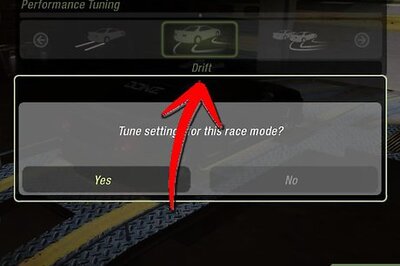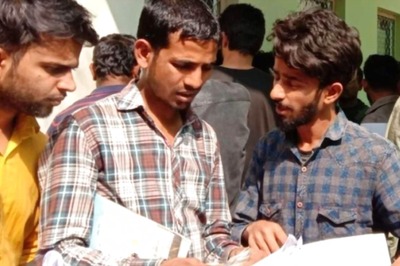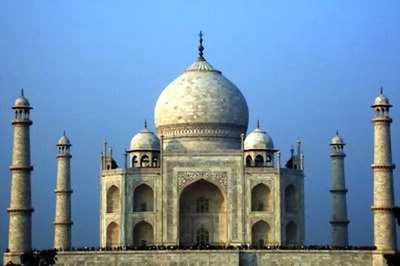
views
What is zakat in Islam?
Zakat is one of the five pillars of Islam and involves donating to those in need. Zakat is the 3rd pillar of Islam and refers to the obligation of a Muslim individual to donate a certain portion (2.5%) of their wealth to those in need each year. Zakat is mandatory for all Muslims who earn above a certain threshold in most countries. It is considered a form of worship. Giving zakat is a way of cleansing your money and possessions from excessive desire or greed. Because zakat is required in Islam, it is not considered to be charity or a tax. Zakat is meant to provide direct assistance to the needy and cannot be used for infrastructure or administrative costs.
How Zakat Works
Zakat is based on income. Islam is a complete code of life and has its own economic principles. Zakat is one of the basic principles of the Islamic economy and is based on social welfare and fair distribution of wealth. Anyone who has more personal wealth than the nisab, or threshold, is required to pay 2.5% of their total wealth. The nisab is based on the value of 87.48 grams of gold or 612.36 grams of silver, so the exact amount varies from year to year and even month to month. Individuals become eligible to pay zakat once they hit the threshold at any point during a lunar year. There is no set payment date. Paying zakat requires that individuals take regular inventory of their wealth and possessions, either weekly or monthly.
Zakat can be donated directly or through a Muslim authority. Individuals required to give zakat may choose who they donate to. This can be done directly by the individual (by donating directly to an organization, for example), or by appointing an agent to distribute on their behalf. Another option is to give the zakat to a Muslim authority who will then distribute the money to eligible recipients.
Who receives zakat?
Zakat is given to those in need. According to the Quran’s Surah Al-Tawba, there are 8 categories of people who qualify to receive zakat. Traditionally, Islamic scholars have interpreted these 8 categories to be the following: Al-Fuqarā': the poor Al-Āmilīyn 'Alihā: the needy Al-Mu'allafatu Qulūbuhum: those sympathetic to or expected to convert to Islam, recent converts to Islam, and potential allies in the cause of Islam Fir-Riqāb: those who are enslaved, trafficked, or otherwise oppressed; slaves of Muslims who have been or are intended to be freed by means of a kitabah contract Al-Ghārimīn: those in heavy debt from attempting to satisfy their basic needs or in pursuit of a worthy goal Fī Sabīlillāh: those fighting for a religious cause/to protect the Muslim community Ibnu Al-Sabīl: Wayfarers, stranded travelers Note that zakat should not be given to one’s own parents, grandparents, children, grandchildren, spouses, or the descendants of Muhammad. It also should not be given to non-Muslims, unless they’re expected to convert.
Is giving zakat required?
In most countries, zakat is required for all Muslims able to donate. Because zakat is one of the five pillars of Islam, according to most beliefs, it is an obligation for all Muslims who meet the income criteria. However, in many countries with large Muslim populations, individuals may choose whether they pay zakat or not. In other countries (like Libya, Malaysia, Pakistan, Saudi Arabia, Sudan, and Yemen), zakat is compulsory, and those who fail to pay are treated like tax evaders. The requirement of giving zakat has led to many disputes throughout the history of Islam, most notably during the Ridda wars. While there won’t always be punishments for not paying zakat, many Muslims believe failing to pay will lead to serious consequences in the next life. It may also lead to a lack of blessings (barakah) in your life. Islam expert Mekaeel Mohsin explains the importance of giving zakat: “Allah tells us to help those who are less fortunate than us. Whether we agree with that or not, it's better for us. It's better for society as a whole. We need to recognize the favor and the bounty of Allah upon us, and we need to start trying our best to get closer to him.
When is zakat given?
Zakat can be given at any time of the lunar year. Not everyone pays zakat at the same time, as individuals become eligible to pay once they hit the nisab, or wealth threshold. It doesn’t matter when it’s paid, as long as it is paid within the lunar year. While there is no set payment date, many pay it out at the end of the year once calculations on any leftover wealth are made. Others prefer to pay during Ramadan or the Hajj pilgrimage. Zakat Al-Fitr is specifically given during Ramadan before the Eid prayer and must be given to provide food for the poor.
How to Calculate Zakat
Determine the current value of gold or silver. The first step to calculating the amount of zakat you owe is to make sure you meet the required threshold, or nisab. The nisab is based on the value of 87.48 grams of gold or 612.36 grams of silver. Look online to see the current value for each during any given month, as the value often changes.
Calculate 2.5% of your personal wealth. Zakat is based on a number of assets, including cash in bank accounts and at home, savings for an intended purpose, stocks and shares, outstanding money owed, and more. If you’re not sure what to include, consult with a scholar. When you’ve determined your total wealth, multiply that number by 2.5% to determine the amount you’re required to give.
Origins of Zakat
The Quran often mentions charity and zakat. Charity is referenced in many verses in the Quran, and some of these are related to zakat. The word zakat (with its current meaning) is found in many suras, including 7:156, 9:60, 19:31, 19:55, and 27:3. It’s also found in early Medinan suras and is described as obligatory for all Muslims. Verse 2:177 of the Quran states, “Righteousness is not in turning your faces towards the east or the west. Rather, the righteous are those who believe in Allah, the Last Day, the angels, the Books, and the prophets; who give charity out of their cherished wealth to relatives, orphans, the poor, needy travelers, beggars, and for freeing captives; who establish prayer, pay alms-tax, and keep the pledges they make; and who are patient in times of suffering, adversity, and in the heat of battle. It is they who are true in faith, and it is they who are mindful of Allah.
Zakat was initiated by Muhammad. Zakat was first collected on the first day of Muharram. The caliph Abu Bakr, believed by Sunni Muslims to be Muhammad’s successor, was later the first to institute a required zakat system. He established the principle that zakat must be paid to a legitimate representative of Muhammad’s authority. The second and third caliphs (Umar ibn al-Khattab and Uthman ibn Affan) continued Abu Bakr’s codification of zakat. Some believe the practice may have roots in Judaism (due to the Hebrew and Aramaic word zakut), though others do not believe that the Qur’anic verses on zakat are related to Judaism.
Related Terms
Nisab Nisab refers to the minimum amount of wealth and possessions a Muslim must own in order to be required to give zakat. If an individual’s personal wealth is below the nisab, they do not owe zakat during that lunar year.
Sadaqah Sadaqah is a form of voluntary giving within Islam. Sadaqah can be given at any time of the year to help those in need. Unlike zakat, sadaqah can be given on behalf of another person. There are two forms of sadaqah. Sadaqah jariya refers to ongoing charity. Sadaqah waqf refers to assets like endowments that are donated or purchased to be held in perpetual trust to provide ongoing charity.
Fitrana Fitrana, or Zakat Al-Fitr, is a donation given before the Eid prayer during Ramadan. It is often given in the form of food and must be given by every self-supporting Muslim who has more food than required to meet their needs.




















Comments
0 comment